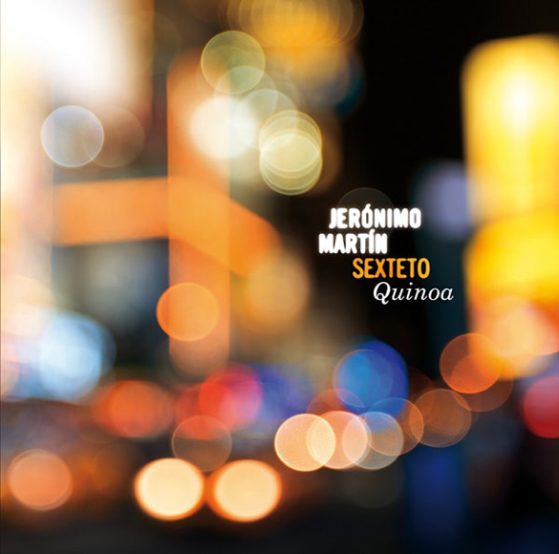“LIVELY, ROMANTIC AND REFLECTIVE MUSIC, ABOUT URBAN DAWNS AND TWILIGHTS, MISTS AND SHOWERS…”
This album was almost appropriately titled Arquitectura de la melancolía (Architecture of Melancholy). Jerónimo’s first recording (Piedraescrita, Errabal Jazz, 2006) anticipated in trio format the virtues that are expressed here in clear calligraphy. A sober elegance in the staging, an interesting balance between doubts and certainties… and, undoubtedly, something akin to melancholy, which threaded and threads the musical discourse, like a state of mind.
Also emanating from this album is an unquestionable architectural vocation, a happy sacrifice of chaos and exploration in favour of the conciseness and narrative logic of the different biographical pieces that shape it. Jerónimo Martín is the liquid that greases the emotional engine of this lively, romantic and reflective music, about urban dawns and twilights, mists and showers. His poetry is elevated and uplifting, but never pretentious.
The arrangements prioritise the general colour over the details, but they also offer little sketches full of energy, such as those improvised by Gonzalo Fernández de Larrinoa, Rubén Salvador or Julen Izarra, with a tone brimming with hope. Their voices are subdued and disordered in harmony, as in the vinyls of the most vulnerable Mingus, or the Charlie Haden of the great formations, with the solid rhythmic drive of Hilario Rodeiro and Javier Mayor, who inject spirit and character.
Jerónimo Martín does not claim the spotlight for himself; his piano simply delimits the broad outline, like a voice-over that describes the setting in broad strokes or declaims the most intimate passages in the first person.
As the album progresses, certainties eventually prevail over doubts to complete a scenic and coherent whole, which draws on folklore (Tivoli), is inspired by a classical aesthetic and may not even be jazz, at least as an African-American would conceive it. The core of this music is not its own swing, nor the free interaction. Its ultimate aim is simply to accompany the listener through a story expressed in an almost symphonic style, which avoids affectation by consciously imposing meaning over feeling, but without giving up on its own emotions: hope (Claridad), self-pity (5 de Mayo), uncontrolled temper (Obertura) or the happiness of simply knowing one is alive (Tutto per amore).
Quinoa transcends because it permeates. Like the smells of the city evoked by Antonio López, the city that beats at every traffic light and in some Cinemascope farewells.
Text of the libretto: David Gotxicoa
Jerónimo Martín, piano and composition
Javier Mayor, double bass
Hilario Rodeiro, drums
Rubén Salvador, trumpet and flugelhorn
Julen Izarra, tenor saxophone
Gonzalo Fernández de Larrinoa, trombone
Recorded in December 2011 at the Elkar studios in Donostia/San Sebastian. Recording technician: Jean Phocas. Assistant technician: Víctor Sánchez. Mixed and mastered at Baleamusika studios in Bilbao by sound technician Unai Mimenza and Jerónimo Martín.

